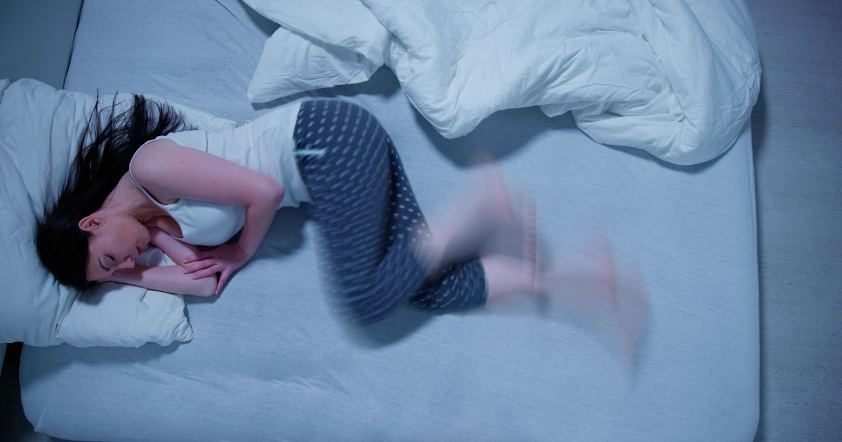
“Twitchy” legs keeping you up at night? This is the main symptom of Restless Leg Syndrome (RLS). RLS creates many challenges for sufferers. Constantly feeling the urge to move one’s legs makes it difficult to sit still or get a good night’s sleep. There are many possible causes of RLS. However, many people don’t realize that RLS can be a symptom of venous disease, and may be alleviated through common vein treatments. Read on to learn more about the potential connection between RLS and venous disease, and what to do about it.
RLS is characterized by “jumpy” legs or a “crawly feeling” in the legs. Other terms people use to describe the sensation are “pulling,” “throbbing,” and “itching.” Regardless of the descriptor, these sensations can create an overwhelming urge to move one’s legs that often intensifies at night. Sometimes the feelings are strong enough to wake someone up or prevent sleep. Moving the legs often reduces the discomfort, but also makes it difficult to rest.
While the exact cause of RLS is unknown, it may be related to a neurological condition in which the brain doesn’t produce enough dopamine. There are several contributing factors, some of which may combine to increase the likelihood of developing RLS:
Recent studies suggest that RLS may also be a symptom of venous disease. Venous disease (or chronic venous insufficiency) is a condition in which veins malfunction, reducing circulation. As a result, blood pressure in the veins increases. This leads to symptoms like pain, feelings of achiness, tenderness or fullness in the legs, varicose veins, and spider veins.
In a 2019 article titled “Treatment of Leg Veins for Restless Leg Syndrome,” researchers found a correlation between RLS and venous disease. They recommended that “venous procedures that correct superficial venous reflux should be considered as therapeutic treatment options.” In simpler terms, procedures like vein ablation and sclerotherapy, which are commonly used to treat venous disease, might ease symptoms of RLS.
A 2020 study reported in Venous News showed that “symptoms of RLS are 34.5% more prevalent in patients with superficial venous insufficiency (i.e. venous disease).” One of the study’s authors also noted that some RLS patients experienced relief after undergoing treatment for venous disease.
At Artemis, we can determine if you have damaged veins by using ultrasound. If you do, you can choose to undergo treatment that will relieve symptoms of venous disease. And, if the damaged veins are also causing your RLS, treatment should address those symptoms as well. Only a medical professional can tell you what might be causing your symptoms and what is the best course of action. It’s worth taking the time to get your symptoms checked out. There’s no reason to keep living in pain and discomfort if relief is available.
Schedule a free vein screening to speak to our experienced vein doctor about your symptoms. Call us at 303-955-8314, or click the scheduling button below. We’ve got an excellent, caring team who is ready to help you.

Dr. David L. Pinsinski is the esteemed founder of Artemis Vein & Aesthetic Center, an expert in the field of vein care, and a distinguished board-certified physician in Internal Medicine. With a dedicated career focused on promoting health and well-being, Dr. Pinsinski has become a trusted name in the vein care community serving Westminster, Co area. His commitment to excellence and compassionate patient care is at the core of his practice. Dr. Pinsinski’s work at Artemis Vein & Aesthetic Center is a testament to his unwavering dedication to providing the highest standard of vein care, making positive impact on patients’ lives so that they can enjoy Colorado’s beautiful nature and outdoor lifestyle.